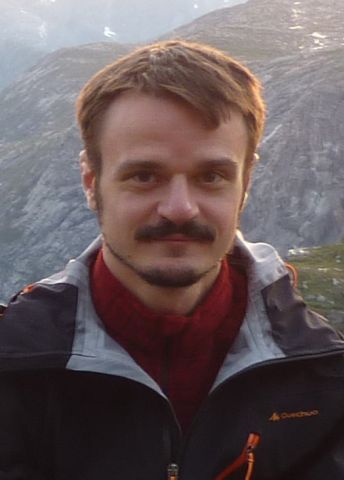
Program for mathematics 2020
Grant to a post-doctoral position abroad
Stefano Marseglia
Stockholm University
Postdoc at
Massachusetts Institute of Technology (MIT) in Boston
Grant to a post-doctoral position abroad
Stefano Marseglia
Stockholm University
Postdoc at
Massachusetts Institute of Technology (MIT) in Boston
Efficient algorithms for new mathematics
Stefano Marseglia received his doctoral degree in mathematics from Stockholm University in 2018. Thanks to a grant from Knut and Alice Wallenberg Foundation, he will hold a postdoctoral position with Professor Andrew Sutherland at the Massachusetts Institute of Technology (MIT) in Boston, USA.
The ability to describe, classify and systematize mathematical objects is important for mathematicians. Some objects studied in arithmetic geometry, which is an application of algebraic geometry to the number theory, are called varieties and moduli spaces. A variety is a geometric shape produced by solutions to polynomial equations; a simple one can be a line that results from a first-degree equation. A moduli space is a way of organizing varieties to better understand them. Moduli spaces can also be interesting objects to study in themselves.
Studies of these objects, which have been raised to increasingly higher levels of abstraction in recent decades, have led to the discovery that algebraic geometry has deep links to almost all branches of mathematics. In fact, the idea of finding common foundations for the various branches of mathematics was the original motivation for this development.
Stefano Marseglia will investigate special types of varieties, the abelian varieties, and their moduli spaces. Some of these, the ones that deal with complex numbers, are quite well known already. Based on recent advances in the field, the knowledge of abelian varieties can be expanded to include other cases.
In addition to the necessary theoretical work, the emphasis will be on creating efficient algorithms for calculating the abelian varieties over finite fields, the associated moduli spaces and their properties. Using powerful computers, hundreds of thousands of examples of never-before-seen Abelian varieties can be calculated. The idea is to make the algorithms available to anyone interested, building up a rich resource for further studies in arithmetic geometry.